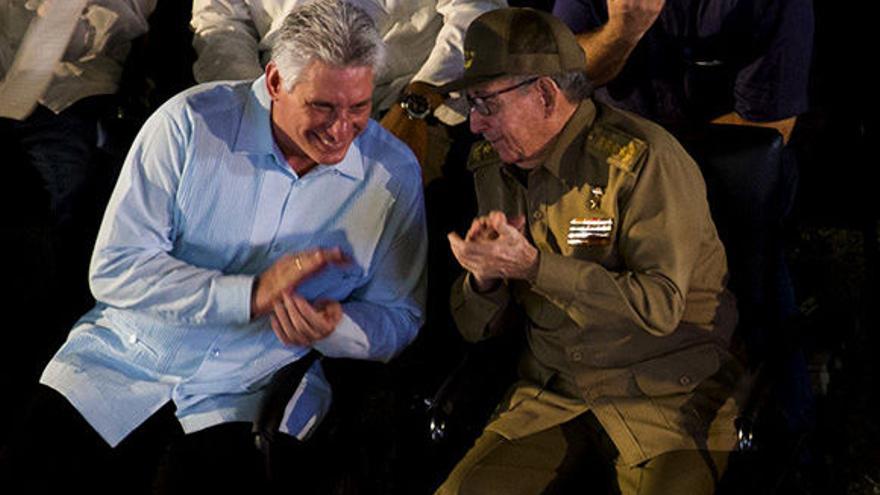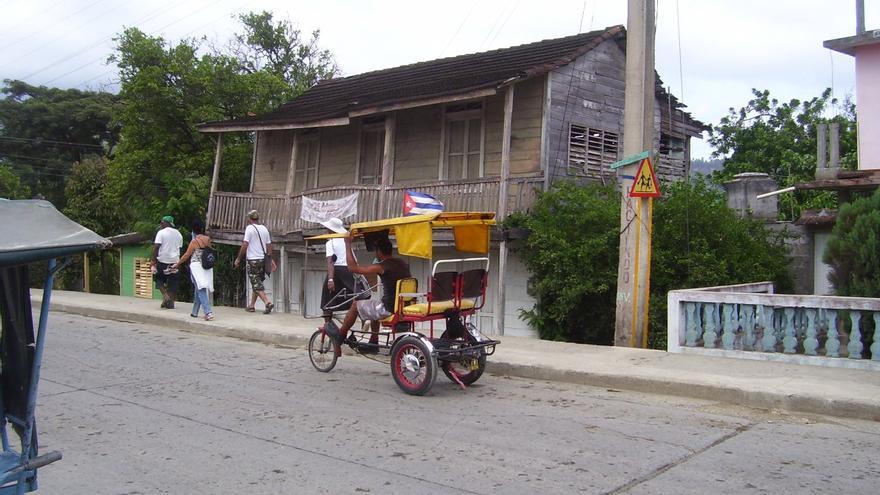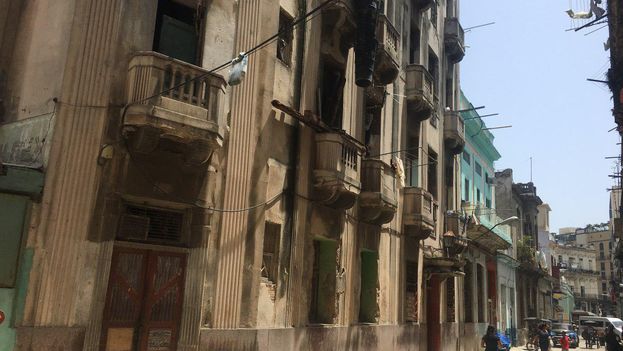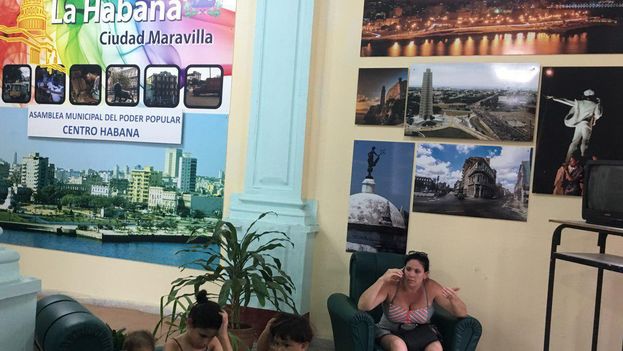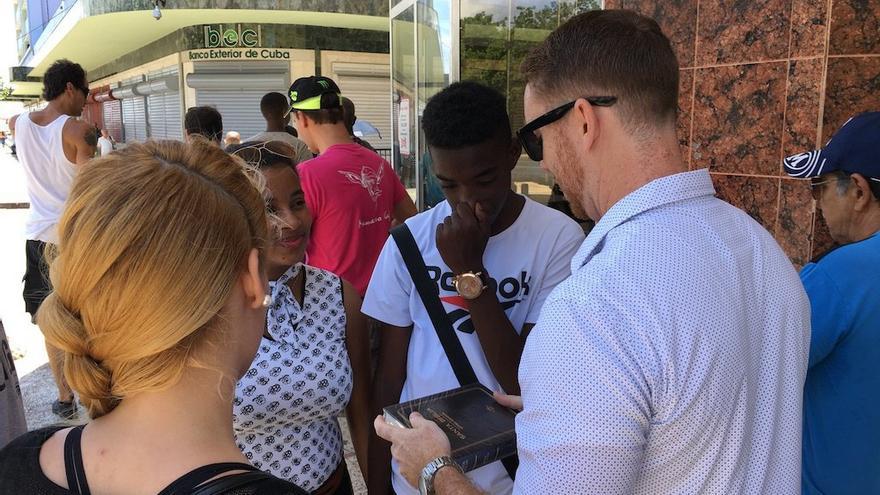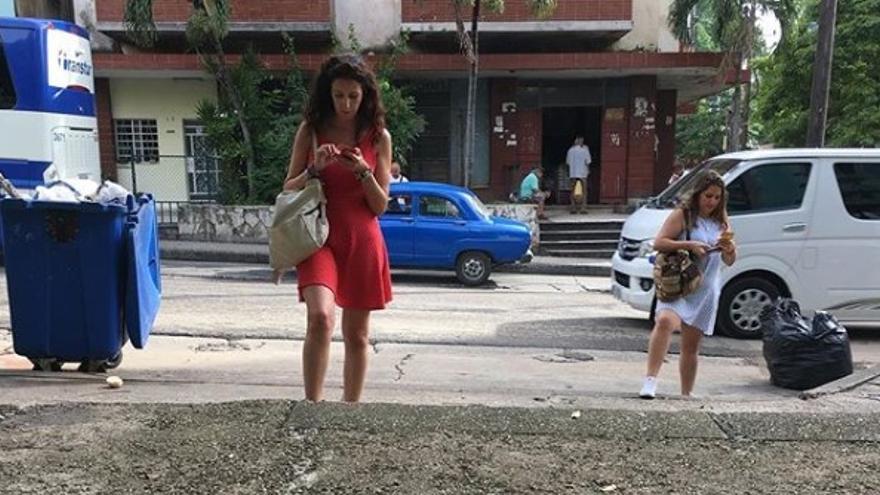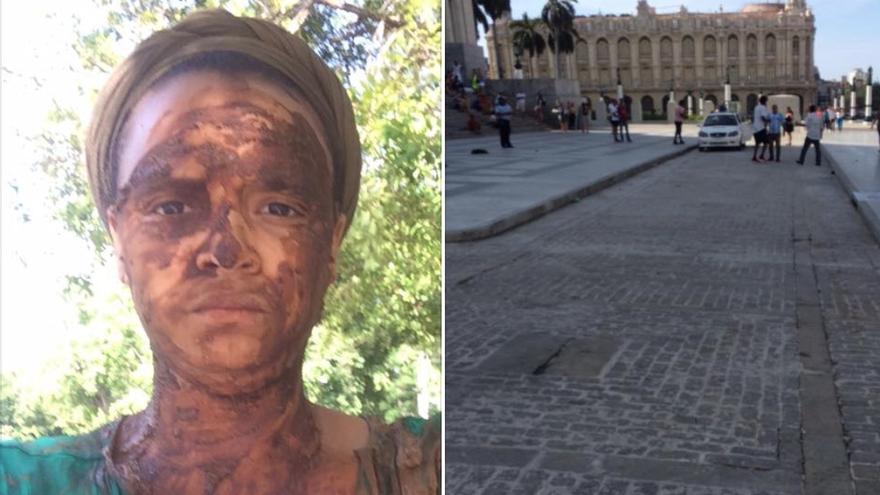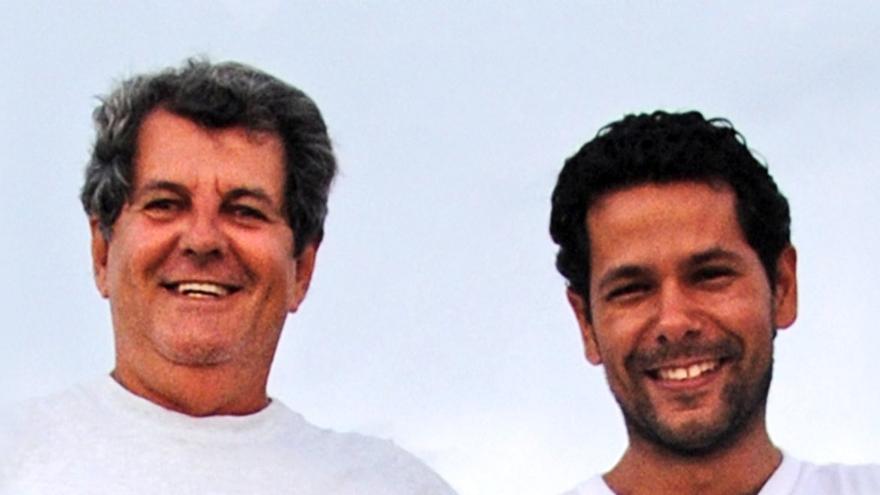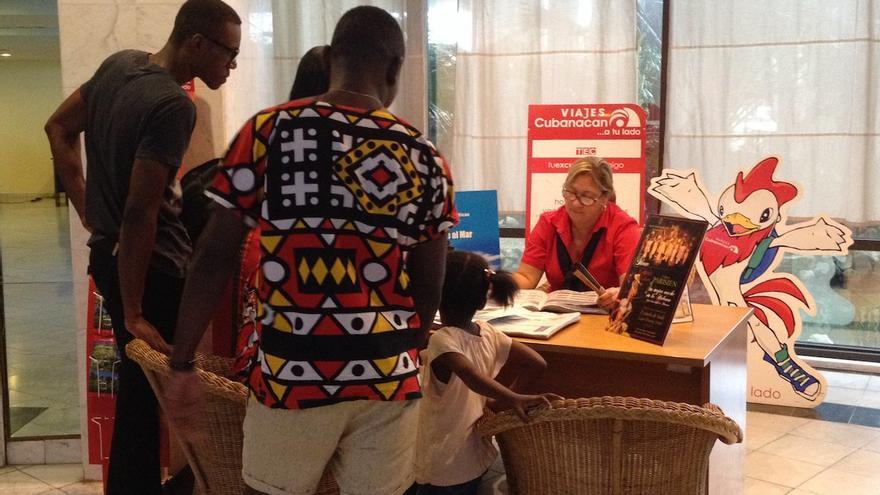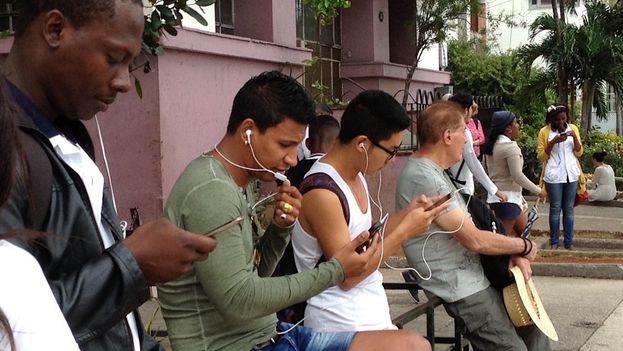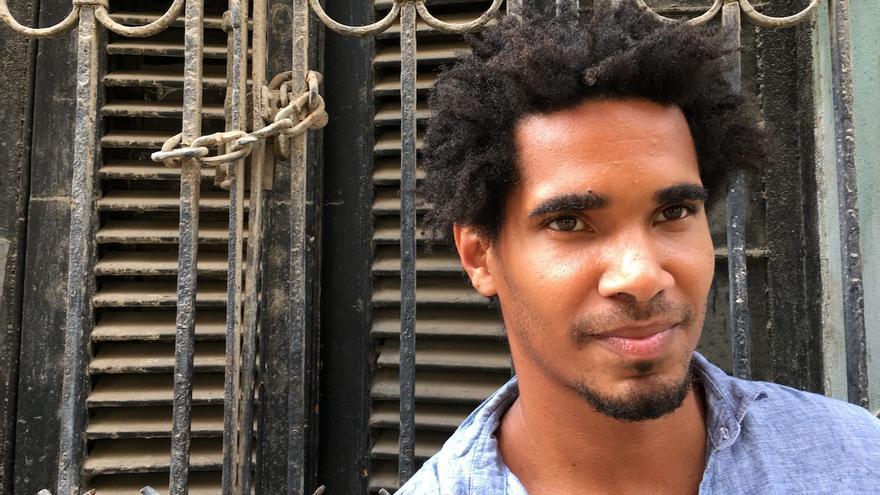
14ymedio, Luz Escobar, Havana, 24 July 2018 — Luis Manuel Otero Alcántara spent two days in detention after the act of protest he tried to carry out last Saturday, along with five other artists against Decree 349 that regulates artistic performances in private spaces.
The group was also made up of Soandry del Río, José Ernesto Alonso, Iris Ruiz, Amaury Pacheco and Yanelys Núñez, the only one of the six gathered on the steps of the Capitol in Havana who was not arrested despite appearing with their faces covered with excrement and holding a sign that called for “free art.” The founder of #00Bienal spent 48 hours in a police station while his colleagues were released in the hours after the arrest.
“They beat me from the Capitol to the police station and told me I have to respect the police. They beat me as if they were trying to break my back,” denounces Otero Alcantara in a conversation with 14ymedio hours after his release. continue reading
The artist explains that the afternoon was quiet and the protest action had not yet begun when the police appeared and arrested them. Although Otero confesses that he was in shock, he reacted by arguing that a citizen sitting in a public space that could not be arrested without proof of having committed any crime worthy of handcuffing him and putting him in the police car. The officer who arrested him refused to give him explanations about the causes of his arrest, so the artist resisted.
At the police station on Zanja Street, the officer known as Kenia, who has dealt with the cases of other artists such as Tania Bruguera, threatened Otero with imprisoning him for many years to prevent his artistic actions. The young man replied that he was already planning the second edition of the alternative Biennial that he organized last May for his “responsibility with the times.”
The group of artists decided to carry out a protest action after having been ignored by the Minister of Culture, to whom they had directed a letter to claim precisely what the decree prevents. “We wanted to be able to meet with the minister to clarify the independence of Cuban art, from music to dance, everything. We want there to be no need to be a degreed artist in order to have a space of legitimacy, and now it turns out that the space of allegiance is such that tomorrow you can lose your house if you sell a painting,” he denounces.
In addition, Otero Alcántara warns that this decree affects not only independent artists but also those who depend on the institution. “You can be a graduate of a school, but if they want to they can remove you from the Artist Register, as happened with some people in #00Bienal, and thus become part of the list of artists from whom they decide to take everything away.
For the artist, the decree “amounts to a stoning of all contemporary Cuban culture, everything that is not official and does not fall within the canon, it goes away” and it is “a very clear response” to the challenge the cultural authorities of the country perceived in the successful carrying off the independent Biennial event held in May.
The striking protest of Yanelis Núñez is, for Otero Alcántara, symbolic as well as very courageous. “It’s shit as a symbol of how we feel and how they treat us,” he says.
Amaury Pacheco, another of those who participated in the action and one of those who managed to record the moment of the arrest of Otero Alcántara, also celebrates this intervention that references the performance of Ángel Delgado, an artist who defecated on a copy of the state newspaper Granma. “Now the shit is on us in the form of protest and that makes us untouchable, Yanelys, they could not touch her and we carry the shit that has been poured on us all this time to the Capitol, directly to their stairs,” he said.
Pacheco feels “very happy” that “at least five people” have taken this step against a decree that he considers “a shot at the head of Cuban art” and a tool the Government uses to make alternative spaces “disappear completely” and to prevent unauthorized activities in private homes. If this is successful, he insists, events such as Endless Poetry or an upcoming independent Biennial will disappear.
These events coincide with an offensive against cultural activities by the Government.
A few days ago, Alpidio Alonso became Minister of Culture. Pacheco recalled that the new minister became famous in Alamar at the time of the “triumvirate” that he formed with Rojas and Jacomino when, in those years, he was directing the policy of the Hermanos Saíz Association. “If afigure with this background now appears as Minister of Culture he must also take a strong position for Cuban artists.”
In addition, this Monday 14ymedio, was able to confirm with the Cuban Institute of Cinematographic Art and Industry (ICAIC) that Ramón Samada is the new president of the organization. The appointment had not been announced in the official media, although it probably occurred in the last month. In a note on the week of German cinema in Havana published in Havana, he was already identified as the highest authority of the ICAIC.
Samada is a hardline officialist known for having starred in several controversial attempts to silence opponents. In 2015, he promoted the attempt to expel Eliécer Ávila from one of the assemblies of the G-20, where a group of filmmakers were calling for a film law on the island.
Years before, in 2010, he banned the entry of several government critics to Chaplin Cinema, where the eighth Young Filmmakers Exhibition was held. On that occasion the documentary Revolution was going to be screened, dedicated to the hip hop group Los Aldeanos. Among the artists who were prevented from entering were Ciro Javier Díaz Penado and Claudio Fuentes.
____________________________
The 14ymedio team is committed to serious journalism that reflects the reality of deep Cuba. Thank you for joining us on this long road. We invite you to continue supporting us, but this time by becoming a member of 14ymedio. Together we can continue to transform journalism in Cuba.

